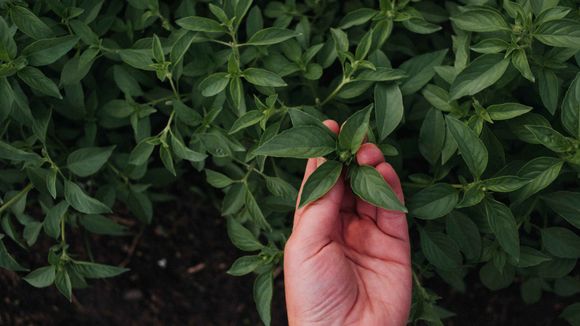Symptoms associated with hypoglycaemia
Common symptoms of low blood glucose levels include:
- Fatigue
- Dizziness
- Shakiness
- Sweating
- Rapid heartbeat
- Irritability
- Confusion
- Blurred vision
- Headaches
- Hunger
Causes of hypoglycemia
Some common diseases and conditions that can lead to low blood glucose levels are:
1. Diabetes
Hypoglycemia can occur in people with diabetes who take insulin or other medications to control their blood sugar. Consult an endocrinologist for proper diagnosis and treatment.
2. Insulinoma
A rare tumor of the pancreas that produces excessive amounts of insulin, leading to low blood sugar. Consult an endocrinologist or gastroenterologist for further evaluation and treatment.
3. Hypothyroidism
An underactive thyroid can slow down the body's metabolism and lead to hypoglycemia. Consult an endocrinologist for proper management.
4. Adrenal insufficiency
Also known as Addison's disease, this condition is characterized by a lack of cortisol production, which can lead to low blood sugar levels. Consult an endocrinologist for diagnosis and treatment.
5. Severe liver or kidney disease
These conditions can affect the body's ability to regulate blood sugar levels. Consult a hepatologist or nephrologist for proper evaluation and management.
Medicines that may cause hypoglycaemia
Some medications that can lead to low blood glucose levels are:
- Insulin
- Sulfonylureas (e.g., glipizide, glyburide)
- Meglitinides (e.g., repaglinide, nateglinide)
- Thiazolidinediones (e.g., rosiglitazone, pioglitazone)
- Beta-blockers (e.g., propranolol, atenolol)

Photo by Melody Zimmerman on Unsplash
Herbal and natural remedies for hypoglycemia
Panax ginseng (Asian ginseng)
This herb is known for its adaptogenic properties and may help stabilize blood sugar levels. It can also help improve energy and overall well-being.
Trigonella foenum-graecum (Fenugreek)
Fenugreek seeds have been shown to help lower blood sugar levels by slowing down the absorption of carbohydrates and improving insulin sensitivity.
Cinnamomum verum (Ceylon cinnamon)
This spice has been found to improve insulin sensitivity and reduce blood sugar levels in people with type 2 diabetes.
Ocimum tenuiflorum (Holy basil)
Holy basil has been shown to help regulate blood sugar levels and is also known for its anti-stress and antioxidant properties.
Lifestyle changes to prevent hypoglycaemia
To minimize the risk of hypoglycemia, consider making the following lifestyle changes:
- Eat regular, balanced meals
- Avoid skipping meals
- Monitor your blood sugar levels regularly
- Exercise regularly, but avoid intense physical activity without proper nutrition
- Limit alcohol consumption
- Manage stress levels
Questions and Answers
Below are ten frequently asked questions that are not covered in the article:
Q: Can hypoglycemia occur in people without diabetes?
A: Yes, hypoglycemia can affect individuals without diabetes due to various causes such as certain medical conditions, medications, or lifestyle factors.
Q: How do I know if I have hypoglycemia?
A: You can monitor your blood glucose levels using a glucose meter. If you experience symptoms of hypoglycemia, consult a healthcare professional for proper evaluation and management.
Q: Can stress cause hypoglycemia?
A: Stress can lead to fluctuations in blood sugar levels, potentially causing hypoglycemia, especially in people with diabetes or other underlying conditions.
Q: Are there any risks associated with herbal treatments for hypoglycemia?
A: While herbal treatments can offer benefits, there can be potential risks or interactions with medications. Always consult a healthcare professional before starting any herbal treatment.
Q: How can I prevent hypoglycemia during exercise?
A: To prevent hypoglycemia during exercise, ensure you have a proper meal or snack beforehand, monitor your blood sugar levels, and adjust your medication as needed under the guidance of a healthcare professional.

Photo by Andrew Ren on Unsplash
Q: Can dehydration cause hypoglycemia?
A: Dehydration can indirectly contribute to hypoglycemia by causing hormonal imbalances and impairing the body's ability to regulate blood sugar levels.
Q: Can hypoglycemia lead to long-term complications?
A: If left untreated, severe hypoglycemia can lead to seizures, coma, or brain damage. Proper management can help prevent these complications.
Q: How quickly can hypoglycemia be treated?
A: Hypoglycemia can often be treated quickly by consuming a fast-acting source of sugar, such as fruit juice or glucose tablets. However, it's essential to consult a healthcare professional for proper management.
Q: Are there any dietary recommendations for managing hypoglycemia?
A: A balanced diet, consisting of complex carbohydrates, lean proteins, healthy fats, and plenty of fruits and vegetables, can help maintain stable blood sugar levels.
Q: Can hypoglycemia be a sign of a more severe underlying condition?
A: Hypoglycemia can be a symptom of various medical conditions, such as diabetes, insulinoma, or adrenal insufficiency. It's crucial to consult a healthcare professional for proper diagnosis and treatment if you suspect an underlying condition.









